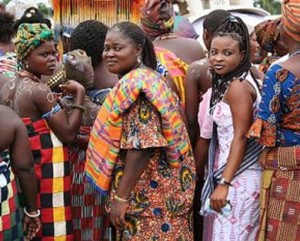Women are at high risk of infectious diseases than men – Minister
 Women are at higher risk for many infectious diseases and have a more severe course of illness than men for many reasons, Uganda Minister of State of Health, Sarah Opendi has said.
Women are at higher risk for many infectious diseases and have a more severe course of illness than men for many reasons, Uganda Minister of State of Health, Sarah Opendi has said.
She made this observation at the UNESCO–MARS 2016 summit which brought together more than 200 researchers from more than 35 African countries to discuss the generation, sharing and dissemination of research data and to prepare for the road ahead in developing Africa as an international hub for research excellence and scientific innovation.
She attributes this to biological differences, social inequities, and restrictive cultural norms.
“Therefore efforts to recognise and reduce health disparities among women have particular relevance for global health,” she said, in a press release copied to ghanabusinessnews.com.
Report elsewhere indicates that Infectious diseases pose an especially formidable threat to women, claiming 15 million lives around the globe each year.
The report further indicates that in addition to hunger, lack of education, environmental and socio-cultural constraints, HIV/AIDS and malaria, along with tuberculosis, continue to disproportionately affect and further weaken the condition of women in many of the world’s poorest regions
“We are very happy to partner with UNESCO, African Union and Ethiopia Ministry of Health to achieve the important goals of improving women’s health and empowering women in research, as they are still under-represented in Africa,” Frank Stangenberg-Haverkamp, Chairman of the Executive Board and Family Board of E. Merck KG was quoted as saying in the release.
For the first time, the UNESCO-MARS launched the ‘Best African Woman Research Awards’ with the aim of promoting women in STEM (Science, Technology, Engineering and Mathematics) that has seen five women researchers from across Africa being recognised for the quality of their research, it noted.
The awards are in line with this year’s UNESCO-MARS 2016 theme that supports women in research and building research capacity in Francophone and Anglophone Africa to ultimately improve women’s health in the continent,” Rasha Kelej, Chief Social Officer, Merck Healthcare was quoted as saying.
The Summit for the first time, is also addressing both Francophone and Anglophone Africa and has attracted researchers from 11 French speaking countries of Senegal, Rwanda, Gabon, Benin, Congo, Cameroon, Gambia, Burkina Faso, Morocco, Niger and Burundi.
Researchers from English speaking countries were drawn from Namibia, South Africa, Ghana, Kenya, Zimbabwe, Nigeria, Sierra Leone, Zambia, Tanzania, Uganda, Malawi, Liberia, Botswana and Ethiopia. In addition, researchers from Arab speaking and Portuguese speaking countries such as Egypt, Angola and Mozambique were in attendance.
The UNESCO-MARS Summit 2016 aims to bring together researchers from across Africa to discuss the generation, sharing and dissemination of research data and to prepare for the road ahead in Africa’s development as an international hub for research excellence and scientific innovation.
By; Pamela Ofori-Boateng
Copyright © 2016 by Creative Imaginations Publicity
All rights reserved. This news item or any portion thereof may not be reproduced or used in any manner whatsoever without the express written permission of the publisher except for the use of brief quotations in reviews.
